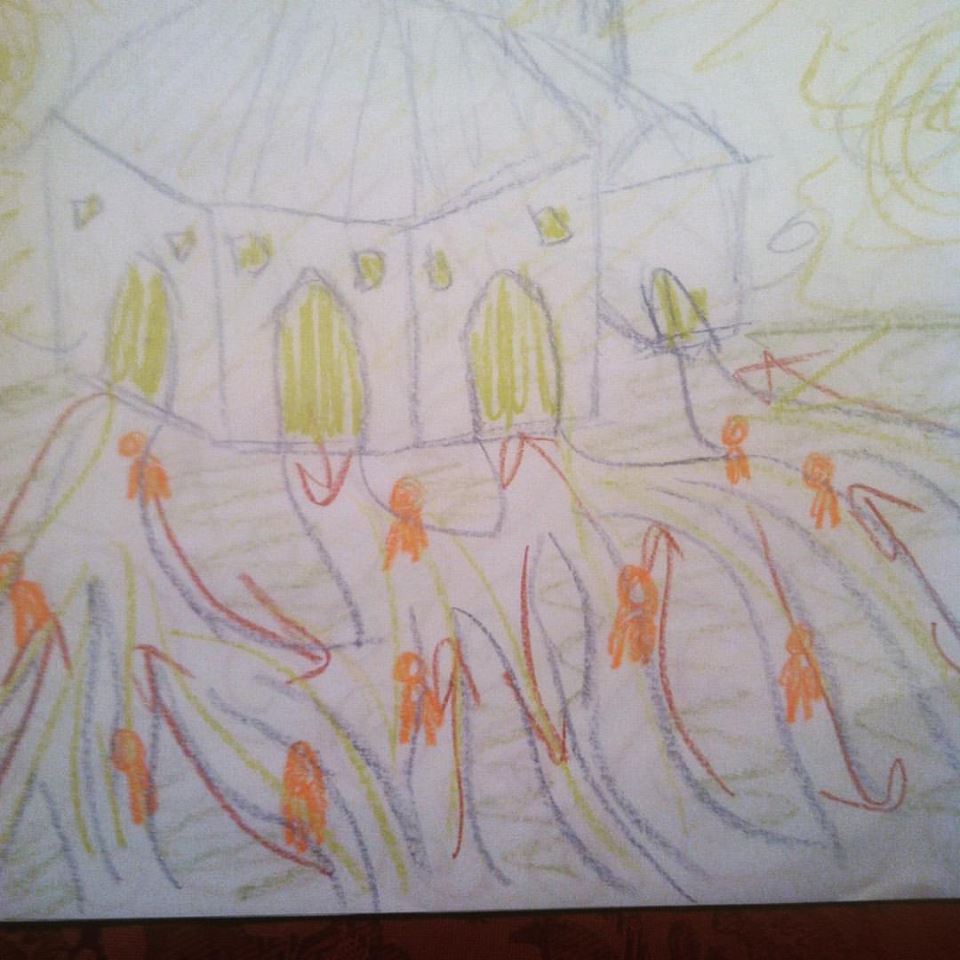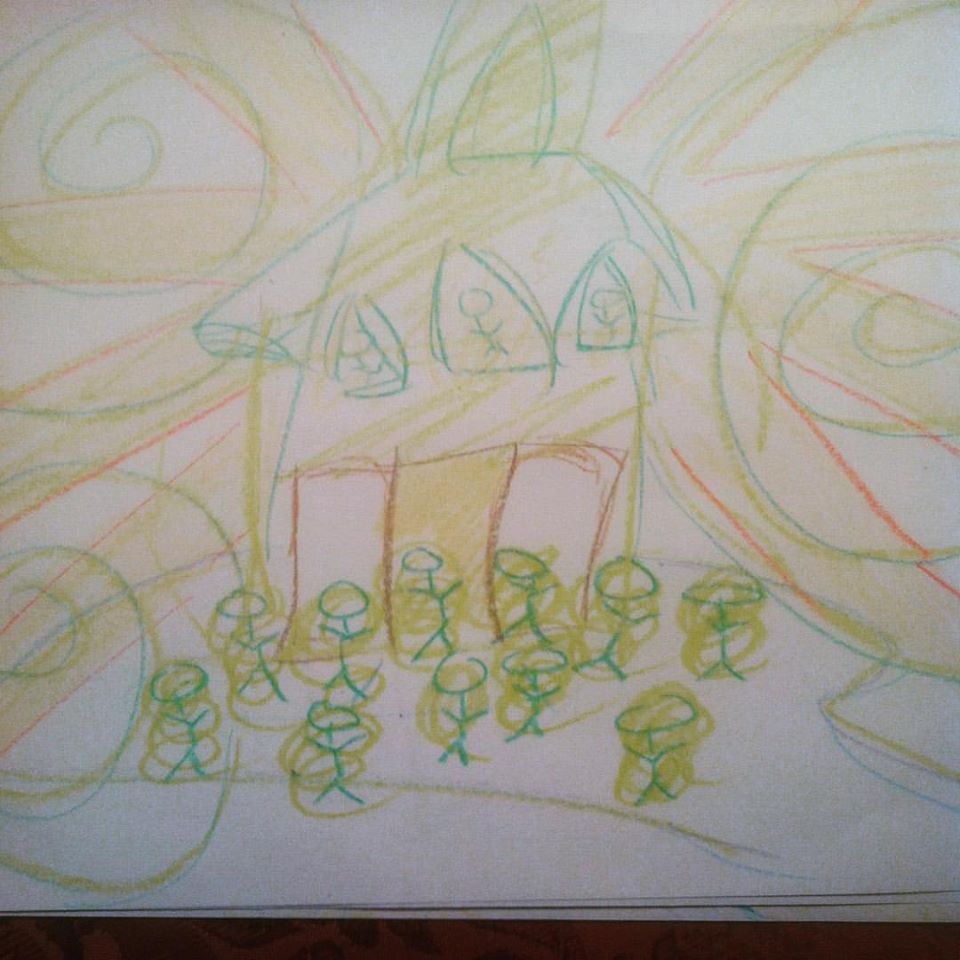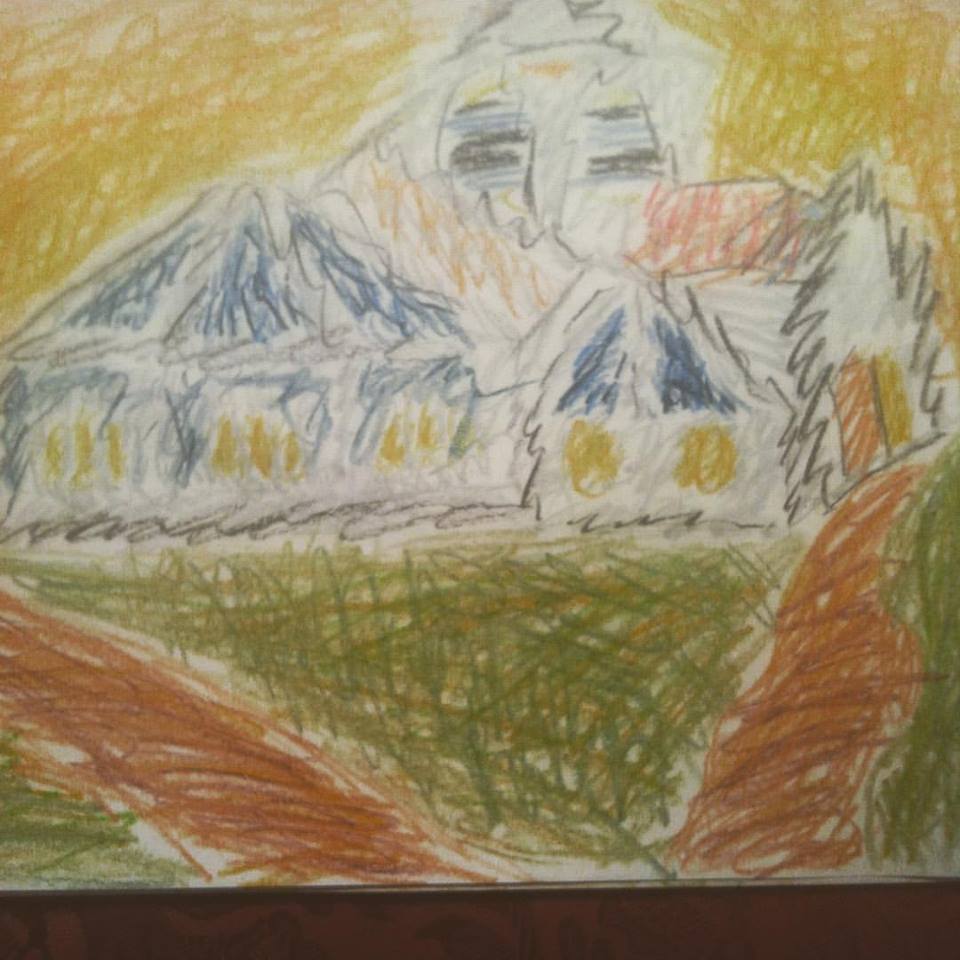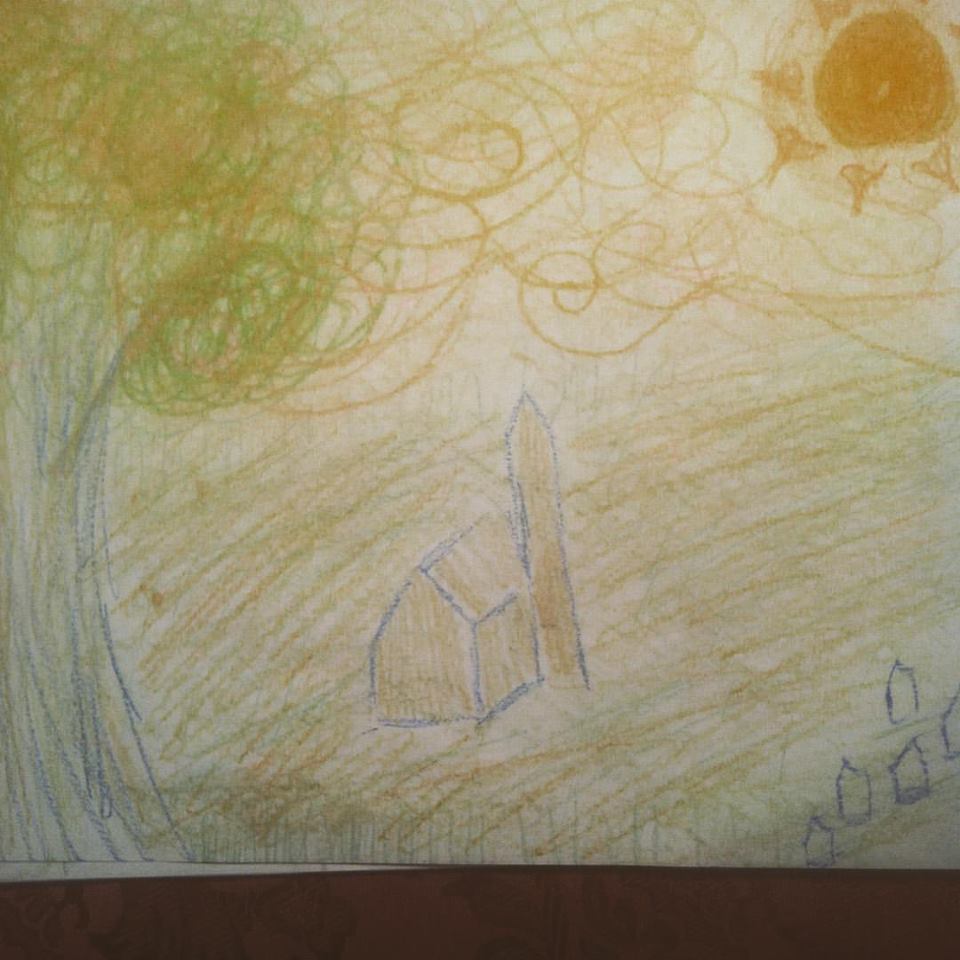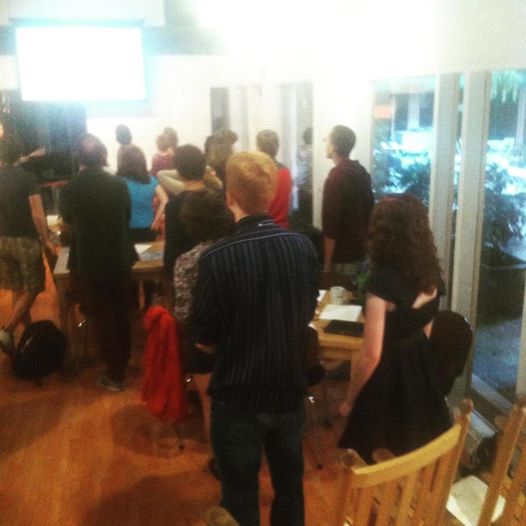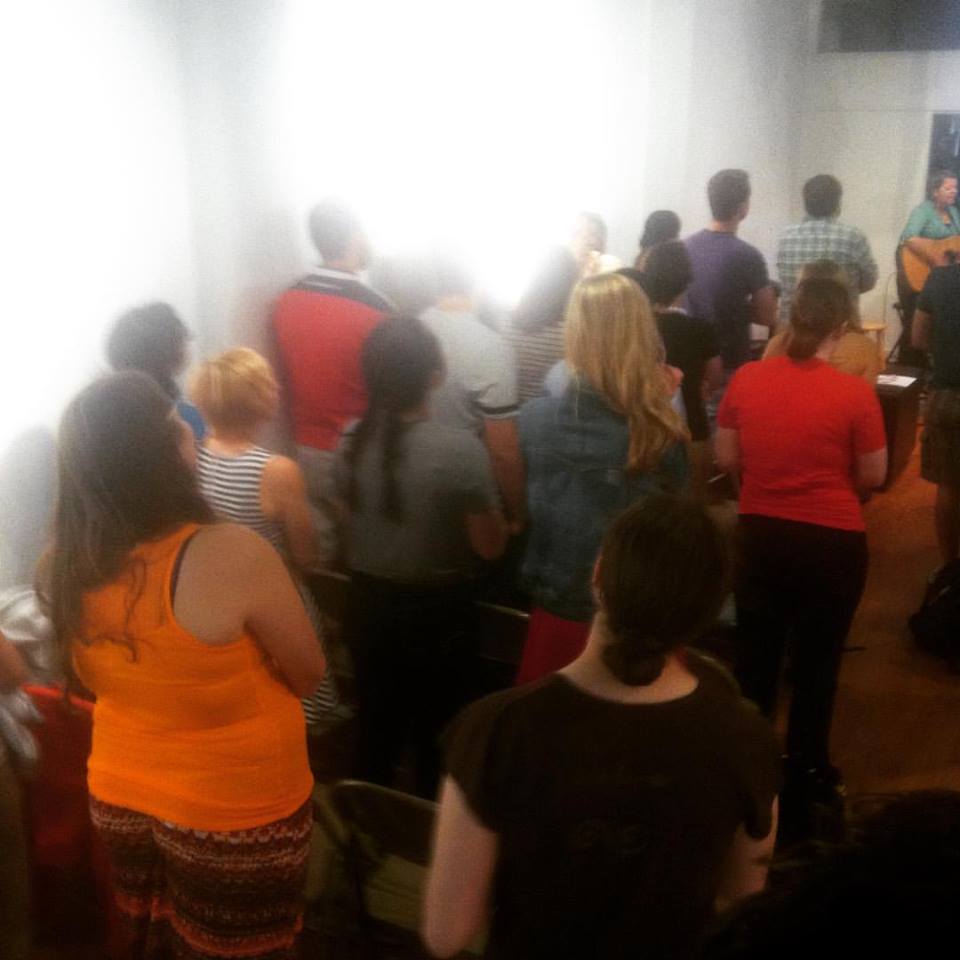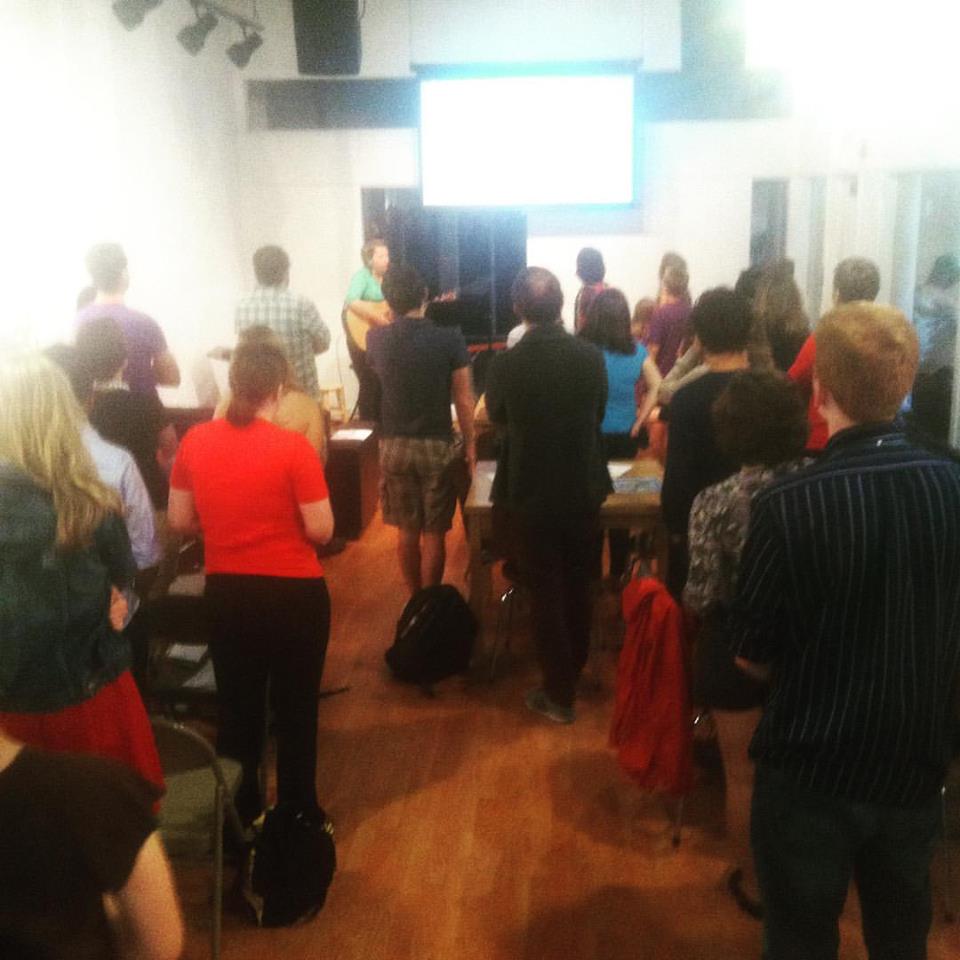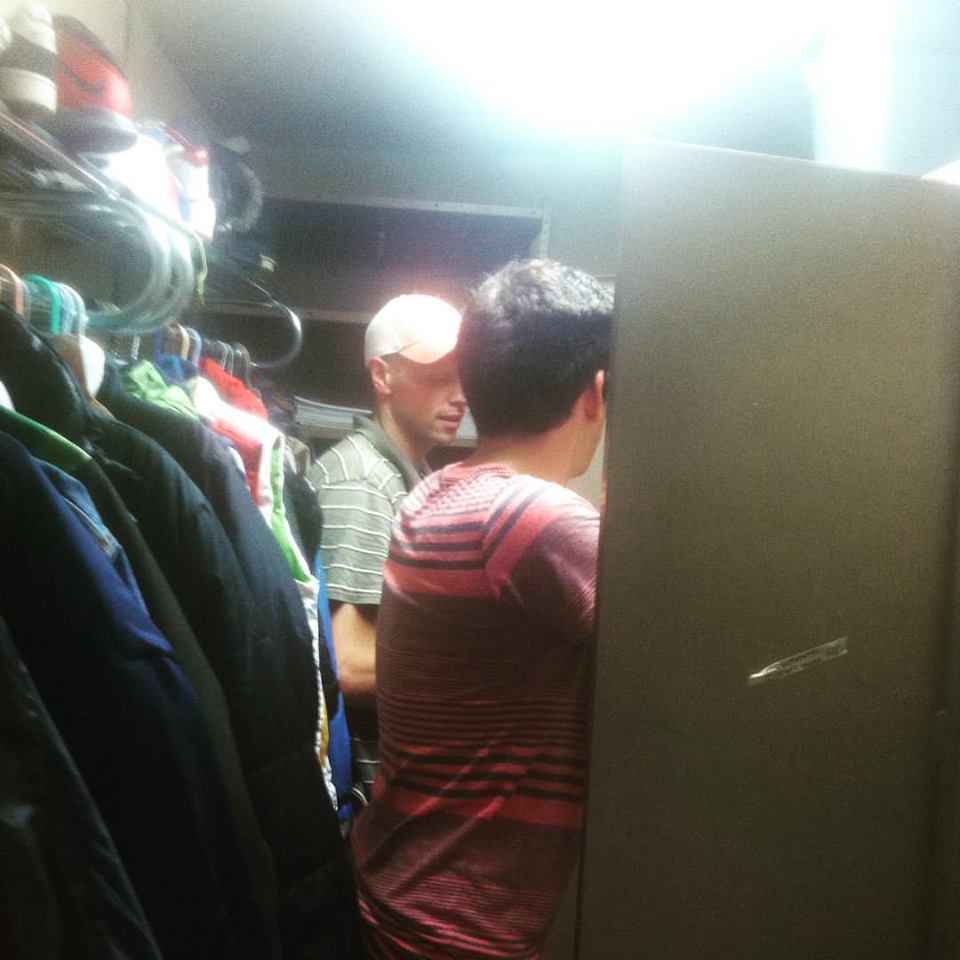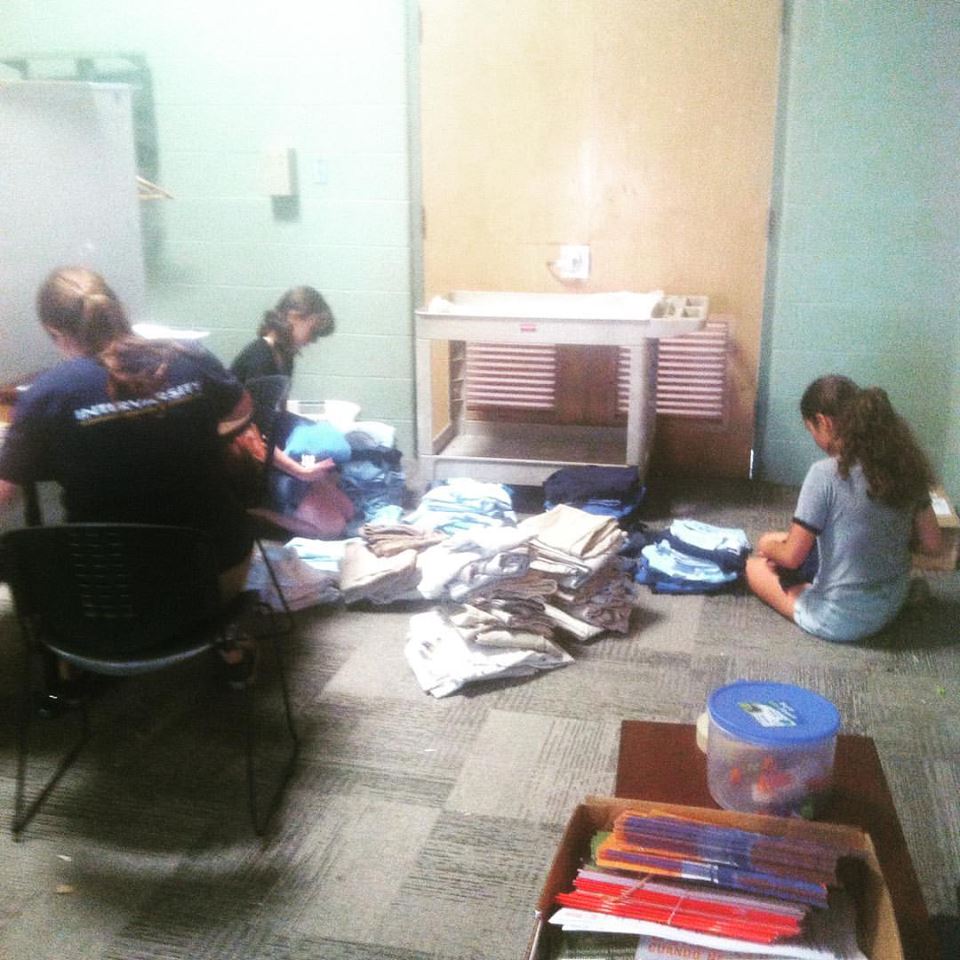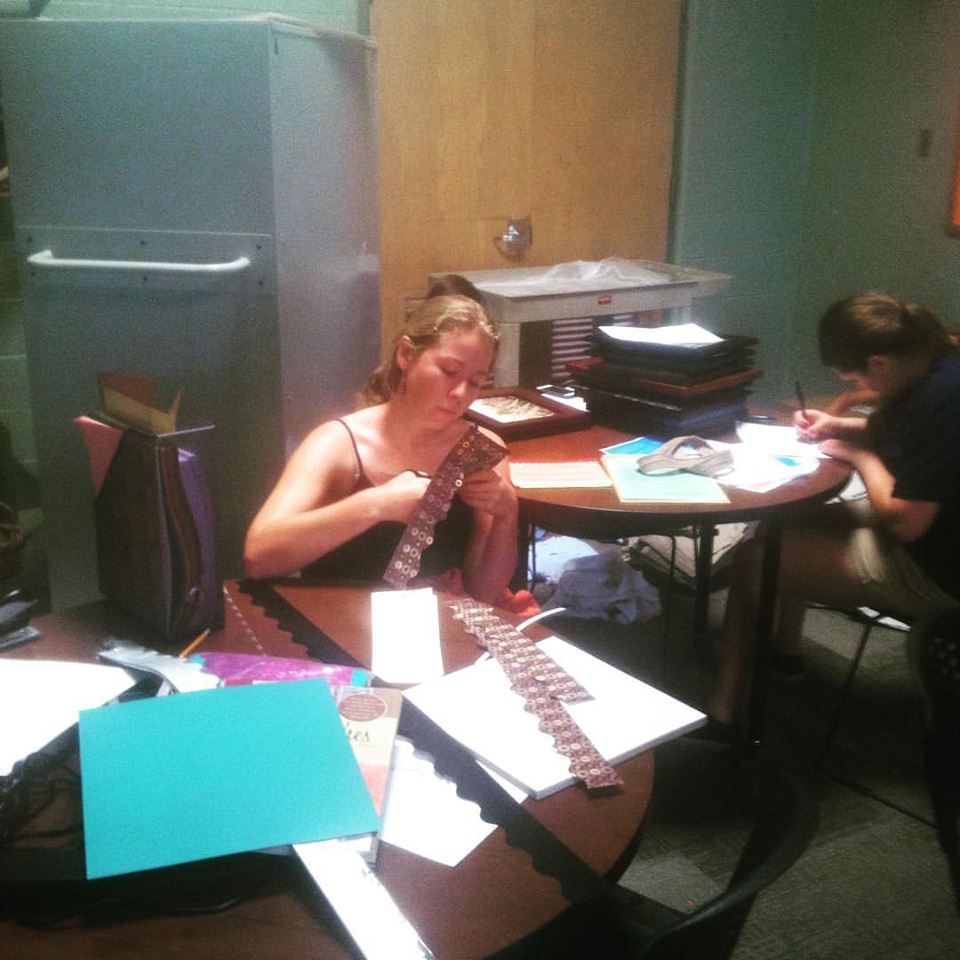The other week I was interviewed by Jeff McLain, a friend who is a driving force in the missional conversation in the Lancaster area. Here is the text of that interview that can also be found on his website (http://www.jeffmclain.com/2015/08/18/an-interview-with-veritas-community-of-lancaster-pa/)
An Interview With Veritas Community Of Lancaster, PA
As an occasional feature on my blog, I interview various unique and missional expressions of Church. This does not mean I necessarily agree with everything those I am interviewing are about or are doing. However, I am excited to hear about people doing community missionally and hope our conversations together will inspire others to transition into a missional movement of the Kingdom of God.
In this Interview, I interview missional church planter Ryan Braught, about the Vertias Community he’s involved with in downtown Lancaster, PA.
Tell me, how did you end up on mission in Lancaster Pennsylvania?
I moved to Lancaster, PA in 1999 to take a position at Hempfield Church of the Brethren at the Pastor of Youth Ministries and Nurture. During that time a college student that had been in the youth group handed me a book and said, “Every time I read this I can’t stop thinking that you need to read it.” This book was to become a huge catalyst in my life, and honestly changed my life, and change the trajectory of my life. The book was “The Shaping of Things to Come: Innovation and Mission in the 21st Century” by Michael Frost and Alan Hirsch. That book led me to look at my life as a missionary and helped me put flesh to thoughts, and brought dreams to reality.
How did the vision for Veritas come about?
During my time at Hempfield I became aware of issues like postmodernity, postChristendom, the emerging church, and the missional church. In my work with the youth of the congregation I began to see a huge divide between the youth of the congregation and the adults. The divide was related to age in that there wasn’t that many young adults in the congregation (18-30) but it also was related to how the world was changing, and what world our youth were living in versus the world that our adults were “living in”.
I began to notice that many youth once they finished youth group were leaving the church, and we also weren’t attracting that many young adults. So back in 2002 I began to experiment with ways of worship that might connect with Young Adults. This first experiment was called EPICenter based off of the concept of EPIC (Experiential, Participatory, Image Based, Connected) put forth by Leonard Sweet. This experiment lasted approximately 6 months and we learned a lot from it.
A year or so later I began talking with people about their faith, their struggles with the church, how they were deconstructing faith, and what they saw as ways of engaging their faith in new ways, and also engaging people outside the four walls of the church building. These conversations then became the catalyst for the first incarnation of Veritas. Veritas launched under the approval of the congregation and we began to develop Veritas. We followed a monthly rhythm of 2 House Churches a month, a Community Gathering once a month, and a worship gathering once a month. These gatherings were mostly at the early stage focused more on deconstruction than construction. It was more like we knew what we didn’t want to be, but we weren’t sure what we wanted to be.
Back when EPICenter was running we focused exclusively on worship. We thought if we would add coffee and candles, and had some more upbeat “rock” worship, that would be enough to draw people to the church. During Veritas we began to work at questions related to what the church was. Toward the end of our time together before we decided to plant Veritas out of Hempfield, we began to discuss and learn about missional church and being missional. So the flow of Veritas could best be described as we started with worship, progressed to ecclesiology, and ended up at missiology. And we began to move into living a missional life as a community and as individuals. We began to hopefully live out this idea shared by Michael Frost and Alan Hirsch, “Our Christology informs our missiology, which in turn determines our ecclesiology”
In 2007 God began to work on me about taking a risk and planting Veritas as it’s own missional church. So through prayer, time, conversation, scripture, and trust we decided to launch Veritas on September 13, 2009. After 5 years we continue to wrestle with being on mission, discipleship, and being community together. And the journey isn’t finished, we have a long way to go.
Veritas is really a unique and fresh expression of a church community. What does it look like when you guys meet, when and where do you meet?
Our Sunday gatherings take place at the Community Room on King which is an art gallery, music venue, performance arts, and rental space that we are the primary lease holders of. Our Sunday gatherings last around 2 hours starting around 10:30. Our mornings include relational community time where people grab coffee and food and just hang out with each other. We have a time of musical worship. We also spend time talking through our Core Values by asking questions like: How have you been a blessing in the world this week? What is God teaching you through Scripture, prayer, life, etc…? How are you sharing life with other followers of Jesus? We have a sermon time which is divided into a monologue time and a dialogue time. The teacher/preacher will unpack the text for a bit, and then we’ll all look at what it looks like to live out that particular text in our lives as individuals and as a community. Normally our last question is What is God saying to you and what are you going to do about it? And what is God saying to us as a community and what should we do about it?
As a growing missional group in Lancaster, where do you tie in for accountability, resourcing and networking?
Our first affiliation that we are tied into for accountability, resourcing and networking is our denominational affiliation, the Church of the Brethren. I have been in the Church of the Brethren since 1996 as a Youth Pastor in two different congregations and I am an ordained Pastor in the Church of the Brethren. Our second affiliation is the Ecclesia Network, which is a network of missional churches, and leaders. We are blessed by both affiliations. The Church of the Brethren as a whole has supported us, even if at times not fully understanding how we are doing and being church together. There have been probably 10-12 different Church of the Brethren congregation along with our Atlantic Northeast District who have supported us financially in one way, shape or form. I’ve gotten to attend our Church Planting conference multiple times and have been able to lead workshops at the last 3 (these happen every other year). We are also really excited about being part of the Ecclesia Network. We started hanging out this group since our founding in 2009 and felt a kindred heart, spirit, and vision. They have supported, encouraged, and helped us in our vision.
What encouragements and challenges have you run into with the Church of the Brethren. What excites you about their partnership with you?
I would say that the encouragement and challenge with the Church of the Brethren relates to the fact that many don’t truly understand how we are seeking to be and to do church. But at the same time, have been truly supportive even in the midst of not really understanding. What excites me about their partnership is the opportunity that we have to show a different way of planting churches. To be a catalyst for change. To help the COB see that the world is radically changing, and we can’t just plant churches the same way that we have in the past. I’m encouraged that I have been given a voice in this conversation. One way that I have been a voice is through the Church Planting Conference that happens every other year. I’ve (as I said before) led workshops at this conference around the themes of missional church, being missional/missionary,and engaging the art and music culture.
What do you define as the mission of Veritas?
Our mission in Veritas is defined as being a community that blesses the world, grows deeper in our journey with Jesus, and shares life together. There are three main components of our mission which if you have done any reading in missional church or communities you’ll instantly recognizing as Mission, Discipleship and Community, or OUT, UP, and IN. W e seek to live out the mission of Veritas in a number of different ways:
Blessing the World– We seek to use our space, the Community Room on King as a hub for mission. We host 1st Friday Art Shows each month. We bring in a local emerging artists and help them create, what for some may be their first, art show. We help promote it, host it, and encourage their gifts. Normal art galleries take between 30-40% commission on every sold piece. We only take 10% because we want the majority of the money to go to support and encourage the artists talent. We also host 3rd Friday Coffeehouses, Open Mic Nights and Concerts. We bring in local musicians and give them a space to promote their work, build their fan base, and grow in their talent. We also use the space to partner with already exists events within the Lancaster community. For the past three years we have been a venue for the Launch Music Conference. The conference is an event for musicians to learn about the music world (recording, touring, etc..) but also to play out at a showcase event. We host a showcase for the two nights of Launch Music Conference. We also partner with the Lancaster Art Walk which is held two times a year and we open our gallery up during Lancaster Art Walk. During the past 2-3 art walks we have also hosted a Before I Die wall where we encourage people to write on a chalkboard wall the answer to the question, “Before I Die i would like to….” Every 5th Sunday of the year, which happens four times a year, we hold our Day of Service, where we partner with a non-profit and serve in some way. The last year we have partnered with Binding Love Scarves, whose mission is to stop Human Trafficking one scarf at a time.
Growing Deeper- Our community gathers currently in two size groups that help us grow deeper in our journey with Jesus. Every week we gather on Sunday mornings for musical worship, prayer, sharing, and looking at Scripture together. Also every week we have 2 Community Groups of 8-15 people who meet together for community, prayer, Bible Study, and to dream about missional engagement together. We also encourage people in their own spiritual journeys through our Facebook page “Veritas Scripture Reading Group” where we post our weekly Scripture readings so that we can all be on the same reading plan.
Sharing Life together- Our community realizes that we can’t do this thing called life, let alone the Christian life, without each other. We seek to spend time doing life together throughout the week and not just on Sundays. We do host 3rd Sunday Community Lunch following our Sunday gathering each month. During the Summer months we hang out every Sunday night at Long’s Park together for a time of relationship building, eating, and listening to the free music concerts. Our people also get together in various ways throughout the week. Many go out for coffee or drinks together. We have several who actually live together. And we encourage people to invite each other to eat together, work out together, and spend time being with each other outside “official” Veritas gatherings.
Through Veritas, what does discipleship look like?
This is one of the hardest questions to answer but also one of the most important ones. Dallas Willard said this about the importance of discipleship and church, “Every church needs to answer two questions. One, do we have a plan for making disciples? Two, does our plan work.” Our discipleship plan, that we are still working and developing (a work in progress), relates to the four spaces of belonging that Joseph Myers talks about in this book “The Search to Belong”. We are trying to develop a discipleship plan that takes into account these 4 spaces. What does this look like practically speaking? Here are my thoughts, and I would love your thoughts, feedback, etc… as well as I continue to flush this out. The first and largest space of belonging is called Public Space and is about larger size gatherings typically over 75 people. It is about sharing a common experience in a larger space. In typical churches this would most likely be a worship gathering. Since our church is smaller than this, this is one area we don’t really address. Some idea of how we might disciple in a Public Space would be bing part of a regional worship gathering, and deeper connections to our Network and Denominational Family. The second space of belonging is called Social Space and is a medium sized group typically between 20-75. This is the size of our current faith community. In this space we hold our weekly worship gathering, as well as seek to do mission together. Our worship gathering isn’t just a one man show. It is a very dialogical time where every person has the opportunity to share, speak, and add their thoughts, opinions, and their experience to our discussion. The third space of belonging is called Personal Space and is a group about 8-15. This space is the perfect space for deeper discipleship to take place. We use Personal Space for our Community Groups which are groups of 8-15 who meet weekly in homes and other spaces for time to build community, study the Bible, pray and do life together. Occasionally these groups will sponsor certain missional activities and invite the rest of the community to take part in it. The fourth space of belonging is called Intimate Space and is groups of 2-3. We are hoping to develop we would call Life Transformation groups where groups of 2-3 people of the same gender would meet together for accountability, prayer, bible reading/sharing, and deeper community. This is still pretty much a work in progress and I hope this will give us direction in moving forward to address the question that Dallas Willard asked. Hopefully we will be able to say Yes we do have a plan for discipleship and yes it is working.
You are a missional practitioner and a missional church planter. They can be very separate identities. How do you find yourself intentionally living out the Kingdom in Lancaster as an individual?
Probably the best way to answer that question relates to how we live our lives as a family in our neighborhood. We try to be a catalyst for community within our neighborhood by hosting events and parties. We give our Hot Apple Cider to parents during Trick or Treat. We have hosted a St. Patrick’s Day Party every year for the last 5 years. During this party we give out Irish Blessings and at the end of the night we read these blessings to each other. We have also thrown Summer BBQ’s, Outdoor movie nights, and other events. Also I try to frequent certain third spaces on a regular basis to build relationships. Being that the Community Room on King is right around the corner from Prince Street Cafe, I tend to frequent Prince Street Cafe 1-3 times per week. I go there to research and write sermons. I go there to meet with people. I go there to meet and engage the Baristas. I’ve developed some relationships with a few of the Baristas there over the last year or two.
As a missional practitioner what influences, inspirations and resources do you draw from?
As I mentioned above probably one of the most significant books that has led me on this journey is the book “Shaping of Things to Come” by Michael Frost and Alan Hirsch. Obviously, the life, death and resurrection of Jesus is hugely inspirational, and influential, as is all of Scripture. Some other resources include the Tangible Kingdom, the Tangible Kingdom primer, AND: The Gathered and Scattered Church, the Power of All, the Gospel Primer, and the Barefoot Primer. Also I have a coach that I meet with on a monthly basis who has planted 3 churches and 1 kingdom
business. He influences me, inspires me, and gives me resources to continue to do what I am doing. I would say that if you are seeking to plant a church, missional or not, that one of the first things that you do is find a coach who will walk alongside of you in this journey. It is, I believe, crucial, to the health and well being of not only the church itself, but you as a leader or planter.
Can you share with us a story of an missional encounter you’ve had recently?
One of the most recent missional encounters that I have had was with an artist that had her own show in our space in February, but also had one piece in our Emotive 2: A Good Friday Art Show that we held on Good Friday. During her first show in February we talked about the vision of the Community Room on King and the connection to the Veritas community. We shared some ideas of ways that we were hoping to connect with the community and she was excited about the ideas and asked to help and be involved. One of the ideas was an event called Chalk the Block where we would write encouraging messages, and words on the sidewalks around the Community Room on King in sidewalk chalk. She was going to donate disposable cameras for us to use to document the event. She was then going to develop them, frame them and we were going to do an art show. The city however after initially giving us the okay for this event, changed their minds, and nixed the proposal. But this artist still was excited to partner with us on something. She came up with the idea of doing Chalk the Block on a board that was painted with chalkboard paint and set it up during Art Walk to get people to add their own encouraging thoughts and quotes. She is making the boards and bringing them to set up at Art Walk.
She also submitted a hugely personal piece for our Emotive 2: A Good Friday Art Show. This piece shared her journey with pain, struggle and heartache. She shared what this piece meant on a newspaper article that the Lancaster newspaper ran on our art show. This piece has been really received by those who have seen it and our Veritas community. It also helped us to have some significant conversations about life, death, pain and struggle. We have been a blessing to her and she has been a blessing to us. And we are grateful for the relationship that has formed through art.
How would you define missional?
This word Missional has unfortunately become a buzz word, and a word that is in danger of losing all it’s meaning. We just now add the word missional to things in order to sell books, look “relevant”, or try to “reinvent” ourselves without really “reinventing” us. We have missional books, missional lighting, missional discipleship, etc.. But what does missional mean? First and foremost, I define it by saying missional is defined by God. God is a missional God. Theologians call it the Missio Dei, the mission of God. God, since the beginning of time, has been on a mission, a mission of Shalom (wholeness, peace, restoration, healing and redemption). Probably the best understanding and most helpful for the person “in the pews” is that missional means being a missionary. I know there are issues with that word, especially in relation to colonialism. But this word missionary, many people will understand what that means. The struggle then becomes helping people see our own country and our own communities as needing missionaries who are sent into their own communities to be the hands and feet of jesus. These missionaries are disguised as stay-at-home parents, teachers, garbage men, bankers, lawyers, doctors, baristas, etc.. What would happen if we could understand that we are all missionaries and that everywhere we go God calls us to a mission of Shalom. To me being missional is just living into the reality that I am a missionary and that every follower of Jesus is a missionary as well.
What do you hope happens with Veritas in the next few months?
There are many different things that I hope happen with Veritas over the next few months. One thing that we are working on is our leadership structure and figuring out the appropriate size of the structure in relation to the size of our community. We are working on developing a structure that will allow others to get involved, and lead areas of our community in which they feel called and passionate about. I am hoping to get this off the ground by the fall. I am also hoping that we can continue building momentum when it comes to our corporate missional engagement with the city. We need to develop a better and bigger base within our community for the missional side of things. I am also hoping for continued numeric growth, not just numbers for numbers sake, but we do need to continue to grow as a community. I am also hoping for growth in our financial self-sufficiency. We need to have our community increase it’s giving and also increasing the rental side of things in relation to the Community Room on King. But probably the thing that I most hope for is a growing connection to the wider community. That people begin to know about Veritas/ Community Room on King and know that we want to be a part of the flourishing of the city (Jeremiah 29:7) and see our community as being a blessing.
How can people get involved and find out more information about what you are doing?
There are a number of ways people can get involved and find out more about what we are doing. First they can visit our website.
If you were giving advice to someone just beginning a journey of missional engagement, what you would say to them?
Be very very patient. Living a missional life, and planting a missional church aren’t the silver bullet to explosive church growth. Missional life and ministry is not a sprint, it is a marathon. David Fitch puts it this way, “we shall expect growth but this growth will most probably happen over a very prolonged period of time. This growth will be on God’s terms. It shall be a work of the Spirit not our work. It means we shall be committed to this place for a minimum of ten years.” Prepare. Understand your preconceived notions and throw them out the window. Look hard at how you define success. This has probably been one of the hardest lessons that I have had to learn and am having to learn. What does it mean to be a success in relation to planting a church? Is it really butts, buildings, bucks? Or is there another way of defining success in the missional church. You need to wrestle this to the ground. Missional engagement isn’t as hard as people think it is, or as big as people think it is. It can be quite simple. Invite a neighbor over for dinner. Throw a neighborhood BBQ. Give out Hot Apple Cider at Halloween to the parents. Throw a Holiday Party. Missional engagement can be a lot of fun.
Why do you feel it is so important Church begins to pursue mission over traditional institution?
I heard a statistic the other day regarding the percentage of people who attend church. The national average for people attending church, depending on who you talk to, is anywhere from a high of 40% to a low of around 20%. My coach and some other people have also shared what the average for church attendance is in Lancaster County (the seeming Bible Belt of PA). They have shared with me that the average in Lancaster County is 17%. The reason that I believe the church needs to begin pursue mission has to do with this statistic but also the fact that we are moving from Christendom to post-Christendom. We are no longer in a world where church and state work hand in hand together and work from the same foundation. We are in a time that the church is losing influence, power, and isn’t being invited to the table (so to speak). As an Anabaptist I believe that the church best thrives on the margins anyway. But many are mourning the loss of this influence and power. I believe this gives the church the perfect opportunity to step back from institutional life and work on being a blessing to people. To live a life of a missionary right here in our own neighborhoods and communities. The shift in culture is helping us and challenging us to actually live life how Jesus lived his life, by becoming missional and incarnational, and not waiting for people to come to us, but for us to go to them.
For more information about Veritas, please connect with Ryan Braught.


